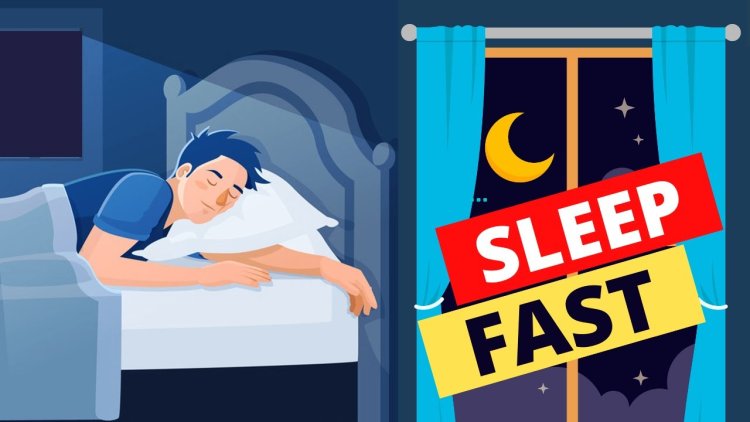How to Sleep Quickly: Tips for Better Sleep
Share this Post to earn Money ( Upto ₹100 per 1000 Views )

Struggling to fall asleep quickly at night can be frustrating and disruptive to your daily routine. Whether it's due to stress, an overactive mind, or discomfort, finding ways to improve your sleep onset can significantly enhance your overall sleep quality. Here are some effective strategies on how to sleep quickly.
Understanding the Importance of Quick Sleep Onset
Achieving a quick sleep onset is essential for maintaining optimal health and well-being. When you fall asleep swiftly, you enter into deeper stages of sleep more efficiently, allowing your body to undergo essential processes such as tissue repair, hormone regulation, and memory consolidation. Poor sleep onset, on the other hand, can lead to fatigue, irritability, and decreased cognitive function the next day.
Tips to Fall Asleep Quickly
Establish a Consistent Sleep Schedule: Maintaining a regular sleep-wake cycle helps regulate your body's internal clock, making it easier to fall asleep at night. Aim to go to bed and wake up at the same time every day, even on weekends.
Create a Relaxing Bedtime Routine: Engage in calming activities before bed, such as reading a book, taking a warm bath, or practicing relaxation techniques like deep breathing or meditation. These activities signal to your body that it's time to wind down and prepare for sleep.
Optimize Your Sleep Environment: Ensure your bedroom is conducive to sleep by keeping it cool, dark, and quiet. Invest in a comfortable mattress and pillows that provide adequate support. Consider using blackout curtains or a white noise machine to block out disruptive sounds and light.
Limit Screen Time Before Bed: The blue light emitted by smartphones, tablets, and computers can interfere with your body's production of melatonin, a hormone that regulates sleep. Avoid screens at least an hour before bedtime, or use blue light filters on your devices.
Watch Your Diet and Caffeine Intake: Avoid heavy meals, caffeine, and nicotine close to bedtime, as these can stimulate your nervous system and make it harder to fall asleep. Opt for light, sleep-promoting snacks if you're hungry before bed.
Manage Stress and Anxiety: Practice stress-reducing techniques throughout the day, such as exercise, journaling, or talking to a friend or therapist. If racing thoughts keep you awake at night, try writing them down or practicing mindfulness to quiet your mind.
Additional Tips for Quick Sleep Onset
Use Relaxing Sleep Aids: Natural supplements like melatonin or herbal teas such as chamomile can promote relaxation and help induce sleep. Consult with your healthcare provider before using any sleep aids, especially if you have underlying health conditions or take medications.
Exercise Regularly: Physical activity during the day can promote better sleep at night. Aim for at least 30 minutes of moderate exercise most days of the week, but avoid vigorous exercise too close to bedtime, as it may be stimulating.
Avoid Clock-Watching: Constantly checking the clock when you can't sleep can increase anxiety and make it even harder to fall asleep. If you find yourself awake for more than 20 minutes, try getting up and engaging in a relaxing activity until you feel sleepy.
Conclusion
Improving your ability to fall asleep quickly involves creating a supportive sleep environment, establishing a bedtime routine, and adopting healthy sleep habits. By implementing these strategies, you can enhance your sleep quality and wake up feeling refreshed each morning. For more tips and information on optimizing your sleep, visit the "SleepingQuickFix" website.

 albertsmith77888
albertsmith77888 





